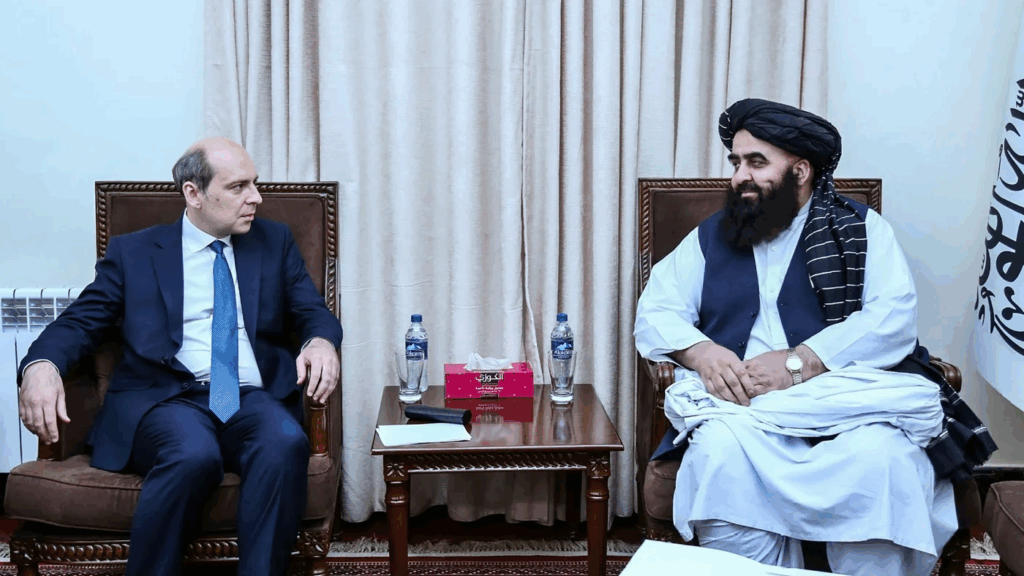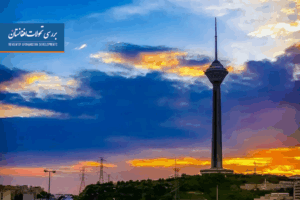Review of Afghanistan developments
Russia is contemplating the elevation of its diplomatic relations with the Taliban government to the level of ambassador. Russian Ambassador to Kabul, Dmitry Zhirnov, has presented an official communication to the Afghan caretaker government concerning the acceptance of the Taliban ambassador. Only a limited number of countries have consented to accept an ambassador from the Taliban government, which is the reason this action has garnered significant attention.
The advancement of relations between Russia and the Taliban to the ambassadorial level signifies a notable progress and rapidity in Moscow’s decision-making concerning events in Afghanistan. Furthermore, it may reflect the anticipated stance of the Taliban government in the region from the viewpoint of Moscow. This article explores the various aspects of diplomatic relations between Russia and the Taliban and their implications.
Russia’s pragmatic policy towards the Taliban government
Russia’s approach to the Taliban administration seems to be intricate and multifaceted. Following the developments of the year 2021, Moscow advanced its policy regarding engagement with the Taliban government in a phased or step-by-step manner, taking each subsequent step based on the prevailing conditions.
In the last three years, Russia’s methodical approach towards Afghanistan and the Taliban administration has been clear. While the foundation of this approach was to engage with the Taliban, there were signs of Russian reluctance to fully commit to this policy until a year ago. For instance, interactions with certain leaders who oppose the Taliban reflected this reluctance, and various factions in Moscow also posed challenges to the engagement strategy.
It appears that Moscow has moved past this uncertainty and, with its recent choice to recognize the ambassador of the Taliban government, has identified its national interests in this regard.
Moscow is showcasing its supremacy in the surrounding region through a gradual policy approach, the most recent of which involves the acceptance of the Taliban government’s ambassador. At the onset of the war in Ukraine, it was anticipated that Moscow would be unable to concentrate on the Afghan situation; however, the Russians have proven their influence and standing regarding Afghanistan by conducting a series of Moscow format meetings and assuming a crucial role in the area.

It is important to highlight that a portion of Moscow’s audacity in executing the incremental policy stemmed from the diplomatic engagements of India, China, Turkey, and Pakistan with the Taliban administration. This interaction prompted Moscow to elevate its relations to a new and significant level: the ambassadorial tier.
Russia’s policy in dealing with the Taliban government
- In contrast to China, which has an economy-focused policy regarding the Taliban government, Russia has taken a stance that is centered on security and political matters. Consequently, the incentive packages that Russia offers to the Taliban government are primarily political-security in nature. Russia anticipates that this enhancement in diplomatic relations will discourage the Taliban government from seeking engagement with NATO, or that should NATO initiate interactions with the Taliban government, Kabul will consider Moscow’s concerns.
In contrast to several nations that have linked their relations with the Taliban government to specific prerequisites, such as the establishment of an inclusive government, Russia, similar to China, prioritizes the protection of its interests in Afghanistan. Russia’s interactive policy towards Afghanistan, while serving its national interests, focuses the relations between Russia and Afghanistan on a “government-to-government” basis, similar to the dynamics of the 1950s and 1960s, and fails to strengthen the ties between the two nations on a “people-to-people” level.
The Taliban government’s expectations regarding its policy of engagement with Russia
While the United States and other NATO allies have embraced a strategy of remote oversight and duality concerning Afghanistan, the Taliban administration has sought support from neighboring nations to endure and enhance its rule. Consequently, the foreign policy of the Taliban government is directed towards the East.
Economic
The Taliban administration, having taken over a financially depleted economy from its predecessor, holds the belief that the Afghan economy will struggle to grow and develop without regional backing and economic engagement. In line with this perspective, Kabul anticipates that Moscow, similar to China, will invest in Afghanistan’s economic infrastructure and enhance the volume of trade exchanges.
Considering the financial sanctions and Russia’s participation in the Ukraine conflict, it appears improbable that Russia will fulfill the expectations set by the Taliban government in the near future.
Political
In the realm of politics, the Taliban administration anticipates that Moscow will provide support in international forums, particularly due to its position on the UN Security Council. A review of recent years indicates that Moscow has effectively fulfilled Kabul’s expectations in this context. One significant barrier to America’s unilateral actions in the Security Council concerning Afghan matters has been Moscow, which has successfully played this role with the backing of China.
While the exchange of ambassadors between Moscow and Kabul may not significantly alter Afghan-Russian relations, it illustrates the depth of their relationship beyond mere de facto status. This action, although highly beneficial to the Taliban government and perceived as a privilege, can be interpreted as a crucial advancement towards gaining recognition. It is clear that Moscow’s decision to accept the ambassador from the Taliban government is pivotal in motivating other nations to engage with Afghanistan’s caretaker government.
Related Articles:
Geo-economics reasons for Russia’s proximity to the Taliban
Russia’s perspective on Afghanistan and Taliban
Conclusion
Over the last four years, Moscow has implemented a strategic approach towards Afghanistan and the Taliban government, culminating in its current acceptance of the Taliban ambassador. A key characteristic of Russia’s policy is its focus on security and its overarching strategy. Among the primary objectives of Russia’s engagement with the Taliban government are to mitigate the risk of Afghanistan aligning with NATO, counter security threats posed by ISIS Khorasan, and secure economic advantages.

















